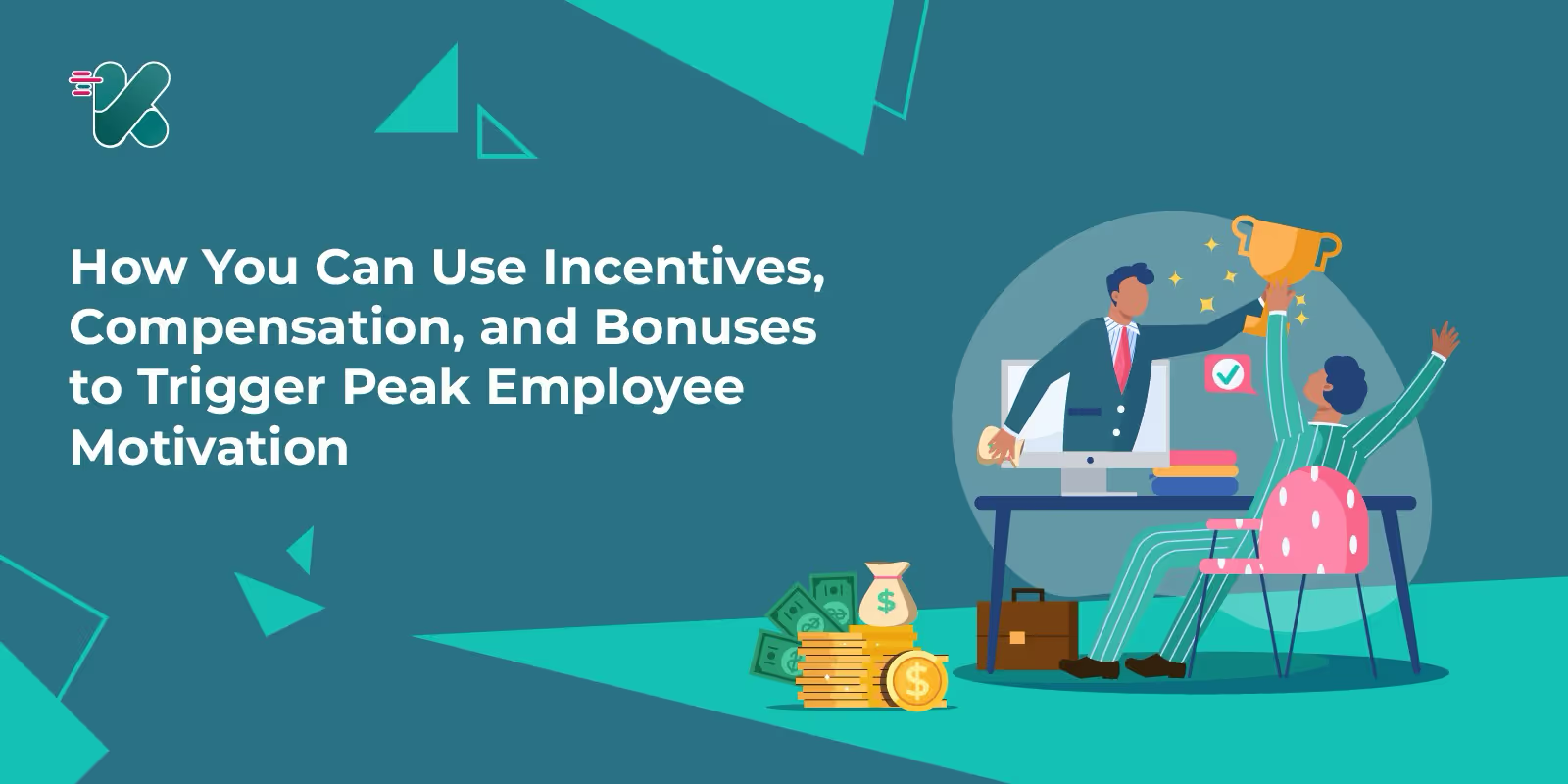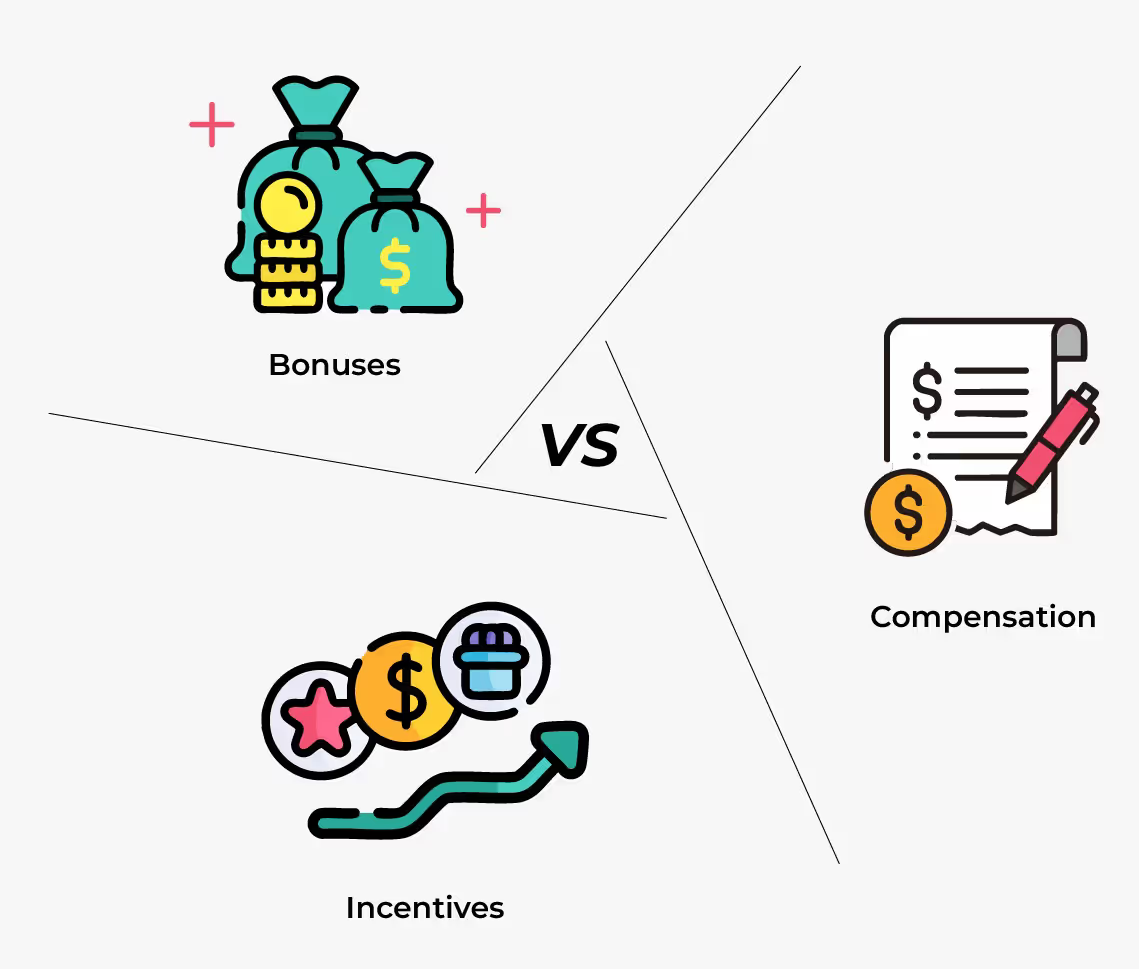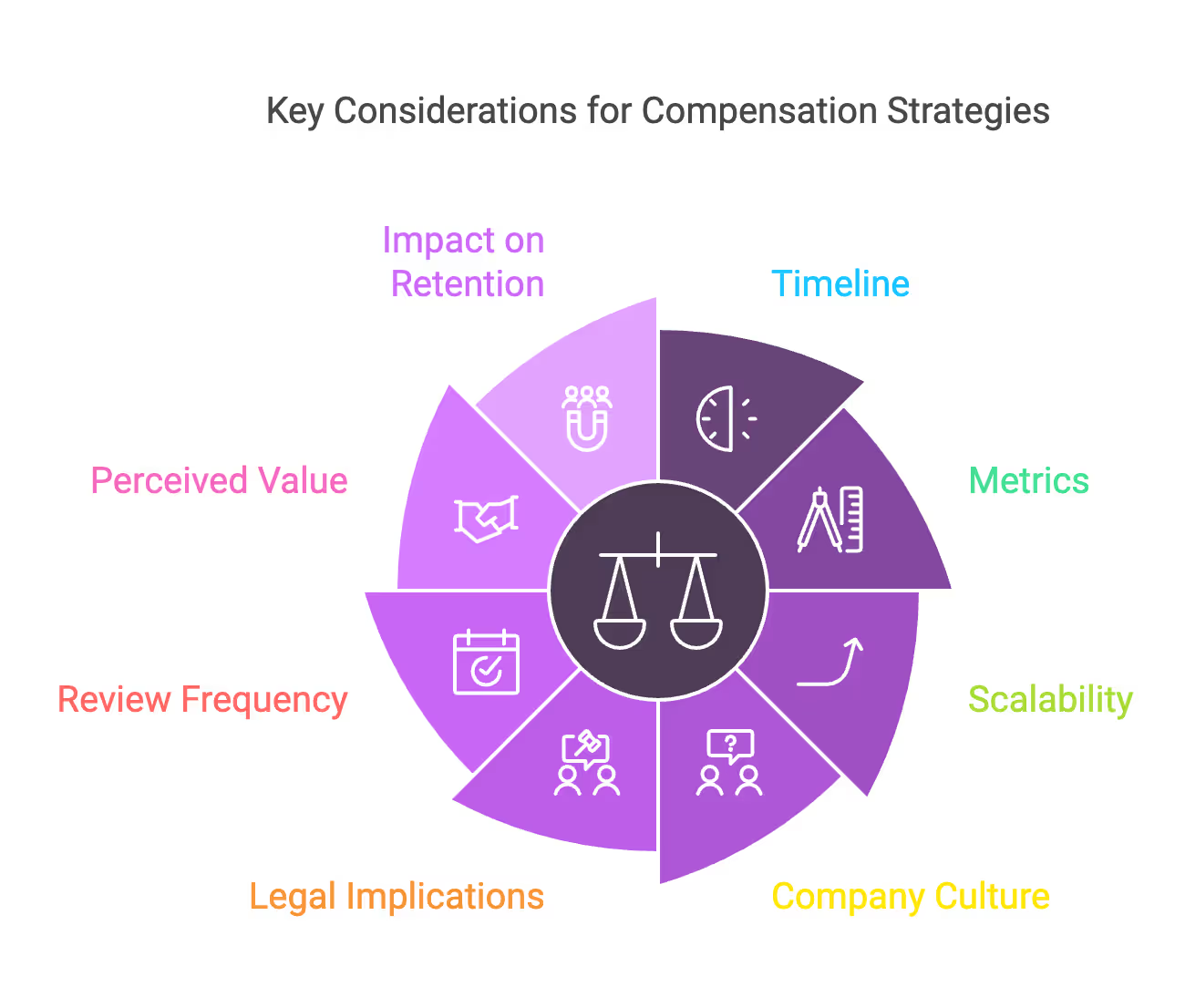
Blog
Explore the best Rewards for Boosting Employee Motivation.
January 2, 2025


Key Insights
How You Can Use Incentives, Compensation, and Bonuses to Trigger Peak Employee Motivation
You're missing the point if you think your employees are motivated just because you’re paying them. Sure, a paycheck is important (nobody’s saying no to that), but if that’s all you’re offering, don’t be surprised when your team starts looking for greener pastures. Motivation is more than money, it’s about feeling valued, growing within the company, and yes, getting a little recognition when they go above and beyond.
In fact, organizations that regularly motivate their employees see a 50% increase in sales. Creating a motivated team doesn’t have to break the bank. In fact, with the right mix of rewards, recognition, and a little creativity, you can keep your employees engaged, happy, and delivering results without draining your budget.
The Unmatched Power of Motivation & Recognition
While salary is crucial for employees, it’s not the sole factor that keeps them motivated. Intrinsic rewards, things like personal growth, acknowledgment, and work-life balance, are equally, if not more, important. Employees want to feel valued, recognized, and empowered. You can significantly enhance job satisfaction and performance by tapping into these intrinsic motivators.
- Importance of Aligning Rewards with Employee Needs and Desires
Every employee has different motivations. Some may be driven by public recognition, while others are more interested in tangible rewards like bonuses. The key to effective employee motivation is personalization. By aligning rewards with your employees’ individual needs and desires, you create a more engaged and loyal workforce.

- Positive Impact of Employee Motivation on Sales and Revenue
A motivated workforce doesn’t just lead to happier employees, it directly impacts your bottom line. Studies show that motivated employees are more productive, more innovative, and more likely to go the extra mile. In sales, for instance, motivated salespeople are more likely to close deals, surpass targets, and bring in new business. This boost in productivity can directly translate to higher sales and revenue for your business.
The Only Employee Motivation Toolbox You Need
To build a highly motivated team, you need the right tools in your motivation toolbox. Let’s dive into three key components that can make all the difference.
Incentives
Incentives are rewards given to employees based on performance. They can be short-term or long-term and typically involve cash or tangible rewards. The beauty of incentives is that they are highly customizable and can be designed to target specific goals or behaviors.
Incentive programs can produce a 27% gain in employee performance. You don’t have to go big to motivate employees with incentives. Offering small, immediate rewards like gift cards, extra time off, or a casual lunch for top performers can be an effective way to keep motivation high without breaking the bank.
Compensation
Compensation is often the starting point in any conversation about employee motivation. However, it’s important to view compensation as a broader concept, one that includes salary, benefits, and any additional perks or rewards. A competitive compensation package can be a great motivator, but it’s crucial to make sure it’s aligned with the value employees bring to the company.
If you're unable to offer a larger salary increase, consider adding non-monetary perks such as flexible work hours, additional vacation days, or health benefits like gym memberships or wellness stipends.
Bonuses
Bonuses are another effective way to motivate employees. They are typically one-time, performance-based rewards given for exceeding expectations. They can be tied to individual performance, team goals, or company-wide achievements. Bonuses serve as a tangible way to recognize and reward outstanding contributions.
Consider a tiered bonus system where smaller bonuses are given for meeting specific, short-term goals. This can help manage costs while maintaining motivation across the team.
Bonuses, Compensation, and Incentives: Which One Fits Your Team Best?
Each reward type, bonus, compensation, and incentive, has its unique advantages and can serve different purposes.

Checklist to Determine Which One You Should Adopt

✅What’s the timeline?
Are you looking for immediate results (short-term rewards) or building a strategy for sustained motivation (long-term compensation)?
✅What metrics will you track?
Do you have clear, measurable KPIs to evaluate the effectiveness of the rewards or compensation system?
✅How scalable is your solution?
Can the chosen approach grow with your team or business, or will it need frequent adjustments as you expand?
✅What’s your company culture?
Does your workplace value competition, collaboration, or innovation? Your choice should align with these values.
✅What are the legal implications?
Are there tax or labor laws you need to consider when implementing bonuses or compensation changes?
✅How often will you review?
Will this be a one-time decision, or will you regularly reassess to ensure continued effectiveness?
✅What’s the perceived value? Will employees view the rewards or compensation as meaningful and motivating, or as just another check-in-the-box?
✅What’s the impact on retention?
Will your strategy help retain top talent or attract new hires?
✅How will you communicate the plan?
Do you have a strategy to ensure transparency and understanding among employees?
✅What’s your industry benchmark?
Are you staying competitive with similar companies in terms of rewards or compensation practices?
Strategies to Drive Employee Motivation Without Overspending
Motivating your team doesn’t always mean spending big bucks. Here are some affordable ways to keep your employees motivated.

- Solicit and Act on Employee Feedback
Regularly check in with employees to understand their needs, concerns, and preferences. Act on their feedback to show that you value their input.
- Offer Flexible Work Options
Flexibility is a key motivator, especially post-pandemic. Offering remote work or flexible hours can improve work-life balance and job satisfaction.
- Foster a Positive Work Environment
A supportive and inclusive workplace boosts morale. Make sure your employees feel safe, appreciated, and motivated to do their best work.
- Celebrate Milestones
Recognize anniversaries, birthdays, and project completions. These small celebrations go a long way in building morale.
- Empower Decision-Making
Give employees the autonomy to make decisions within their roles. Empowered employees feel more invested in the company’s success.
How Automation Can Helps Save Time and Money?
Handling incentives, compensation, and bonuses manually can feel like swimming upstream. It’s tedious, time-consuming, and prone to errors. But guess what? Automation can take that weight off your shoulders and make your processes smoother than ever.
Instead of spending hours calculating bonus payouts every quarter, you can have a system that does it for you, accurately and effortlessly. With incentive and compensation management software, businesses can automate tracking performance, calculating rewards, and distributing bonuses.
Conclusion
Remember, motivation doesn’t have to come with a hefty price tag. With the right mix of rewards, recognition, and personalization, you can foster a high-energy, engaged team that delivers impressive results. And the best part? When you get motivation right, your business will see tangible growth in productivity, sales, and long-term success.
So, start small, get creative, and watch how investing in your people pays off, both in terms of business growth and employee satisfaction. After all, when your team is motivated, everyone wins!
ReKennect : Stay ahead of the curve!
Subscribe to our bi-weekly newsletter packed with latest trends and insights on incentives.
Thank you! Your submission has been received!
Oops! Something went wrong while submitting the form.
Your data is in safe hands. Check out our Privacy policy for more info











